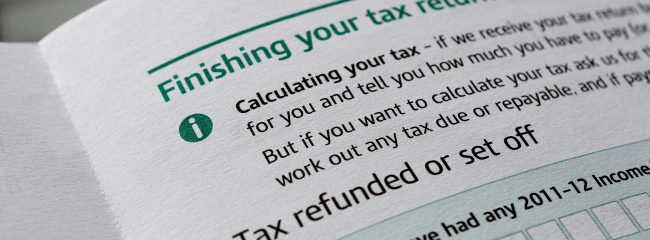
Dave Crosby on Flickr
Under the new Making Tax Digital plans, businesses will be required to complete quarterly tax returns throughout the year.
The measure will be phased in from April this year, a gradual process which will move onto Income Tax in 2018, VAT in 2019 and then Corporation Tax in 2020.
Although this gives you time to acclimatise, you may still need a helping hand adjusting to the online system and the increased number of returns.
Whether you seek professional advice is entirely up to you, although there are pros and cons of facing the challenge without professional guidance.
Pros
The government plans will transform the way we manage our tax affairs. With a real-time view of your tax responsibilities, you’ll be informed of specific payment deadlines and how much tax is owed at the click of a button.
In this sense, there should be less need for assistance with everything laid out in front of you. This will save you paying accountancy fees that can rack up throughout the year, especially when dealing with quarterly returns.
Dealing with the digital system on your own has privacy benefits. The HMRC plans will make personal and third-party data visible in the same online account – you may not want accountants prying through delicate information in this manner.
For the traditionalists accustomed to the annual returns system and still concerned about the digital overhaul, there’ll be additional support from an online chat service.
Cons
With such a big tax change to deal with, it makes sense to seek specialist advice to oversee the transition. Although the government aim is to simplify things, errors can still be made when dealing with an array of complicated figures.
And because mistakes will result in fines or penalties from the HMRC, a professional accountant may actually save your company money in the long run despite the initial outlay.
Using a financial advisor allows you to tap into their wealth of knowledge and experience. This could help when setting up cloud-based accountancy software or exposing various tax-reduction schemes, for example.

Dealing with quarterly returns on your own will be time-consuming. This is a problem many small business owners are unhappy with, claiming the increased quantity of data sought by HMRC will increase administrative costs.
However, doing the accounts quarterly is more likely to increase efficiency as overdue, messy tax information is less likely to stack up. Frequent interactions and automatic updates, combined with a professional accountant overseeing things, will reduce the workload for SMEs.
Remember that, despite some information being updated to your account instantly, you’ll still be required to keep up-to-date financial records throughout the year. This is the case if tackling quarterly returns on your own or using an accountant. Because of this, it makes sense to seek specialised help so mistakes aren’t made.
Each route is viable as the ‘Making Tax Digital’ system is phased in over the next few years. However, it’s advised to use a professional accountant so the transition runs smoothly and your business stays as tax efficient as possible.
If you’d like to know more about the Making Tax Digital plans, you may find How Will the Quarterly Digital Tax Returns Realistically Affect Your Business? useful.
For further advice, get in touch.
